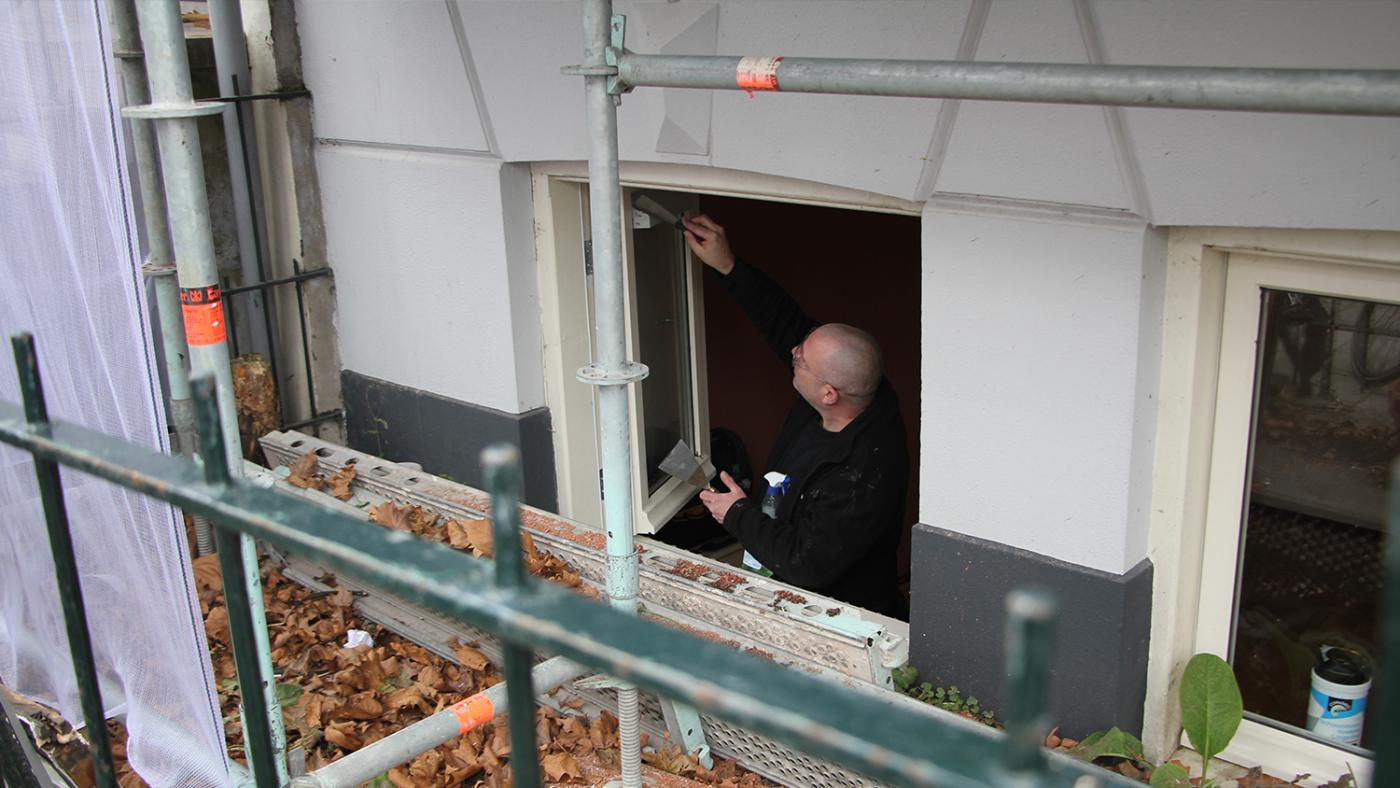Historic SSH buildings will get double glazing
‘It’s inconvenient, but the construction workers are very sweet’
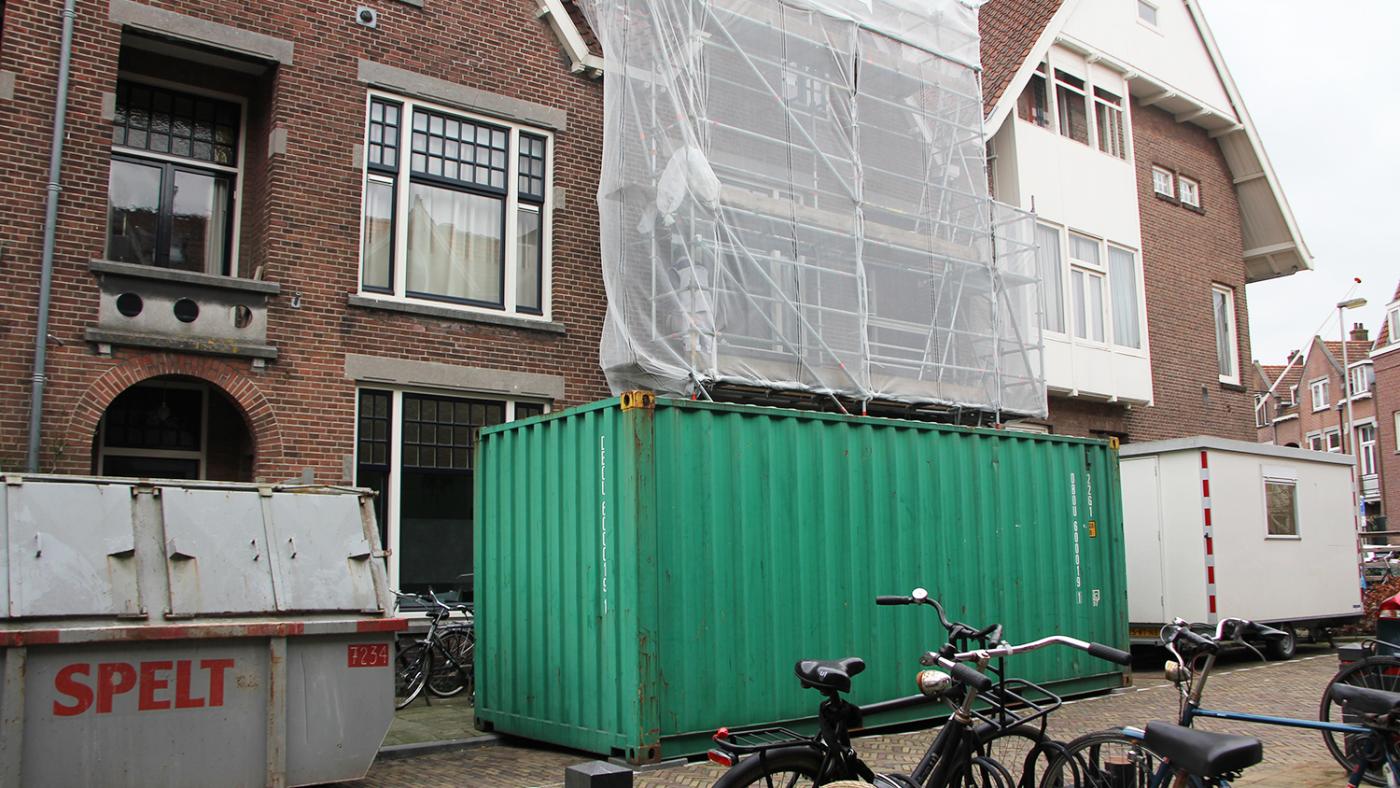
Monday morning, 7:00 am. A new working week is about to start. It’s cold and dark outside, but Bram’s lecture doesn’t start until 11:00, so he can sleep in.
But then... A noise comes from the front yard. Somebody slams the front door. Bram hears male voices. Some ringing, some hammering, and an occasional yell. Who on earth does that at this time in the morning? Oh, right, the construction workers sent by SSH. Annoyed, Bram puts his pillow over his head.
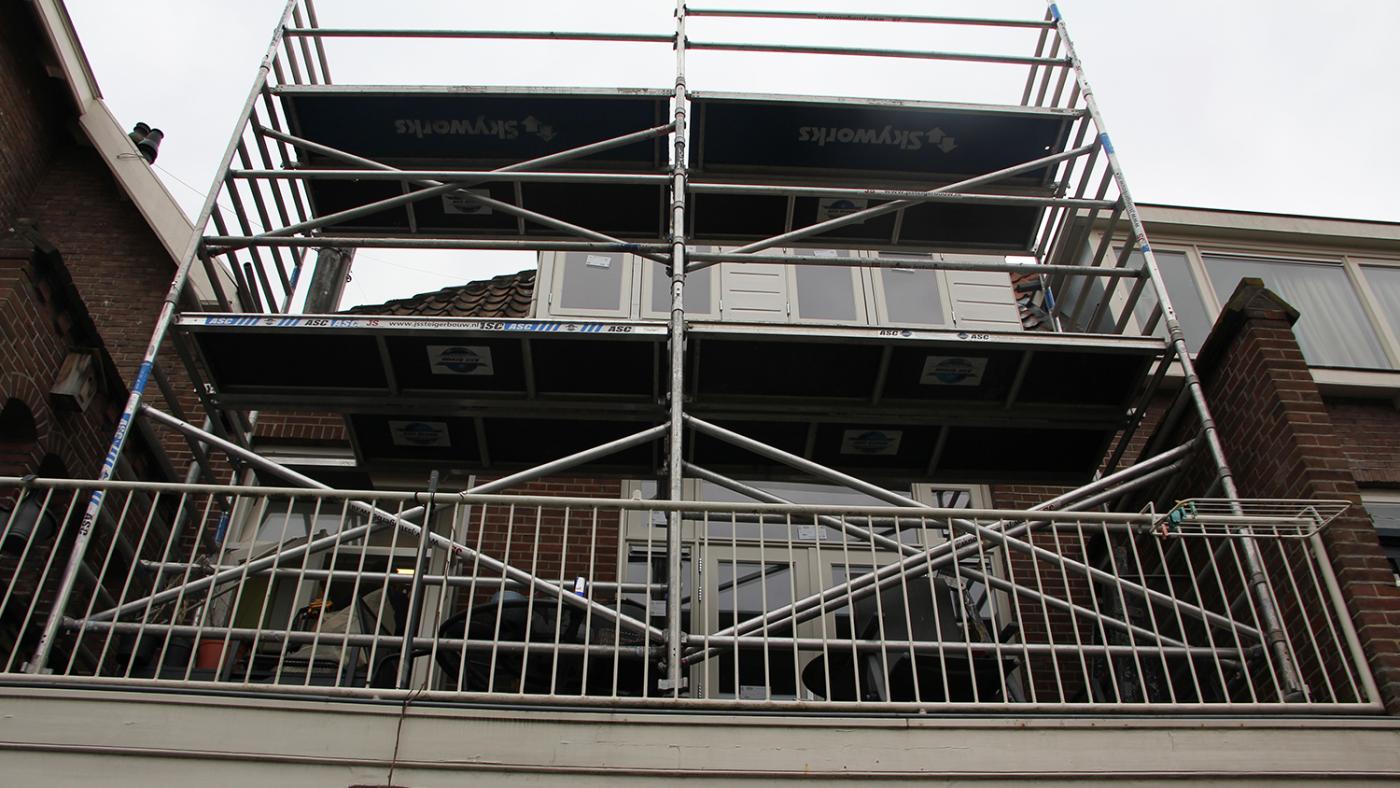
A construction worker is standing in the hallway of Bram’s student house in Eastern Utrecht. He is tapping on his phone with calloused fingers. He is responsible for part of the renovation works but doesn’t know off the top of his head which room he’s tackling today, so he's trying to find the right information in the multiple PDF documents that have been shared with him via WhatsApp. One of the documents contains a diagram, another document contains a map, and yet another contains the most recent changes to the planning. But the PDFs are clunky and far too large for his small screen.
He can’t just pick a room to work in. This building does not have a living room, so each room is a living, sleeping and studying space. Some of the rooms are only 12 square meters in size and they are usually full of items that the resident has nowhere else to store. The contractor must therefore work according to schedule. Otherwise, they will disturb an occupant who wasn't counting on having to leave their room, making room for them for a while.
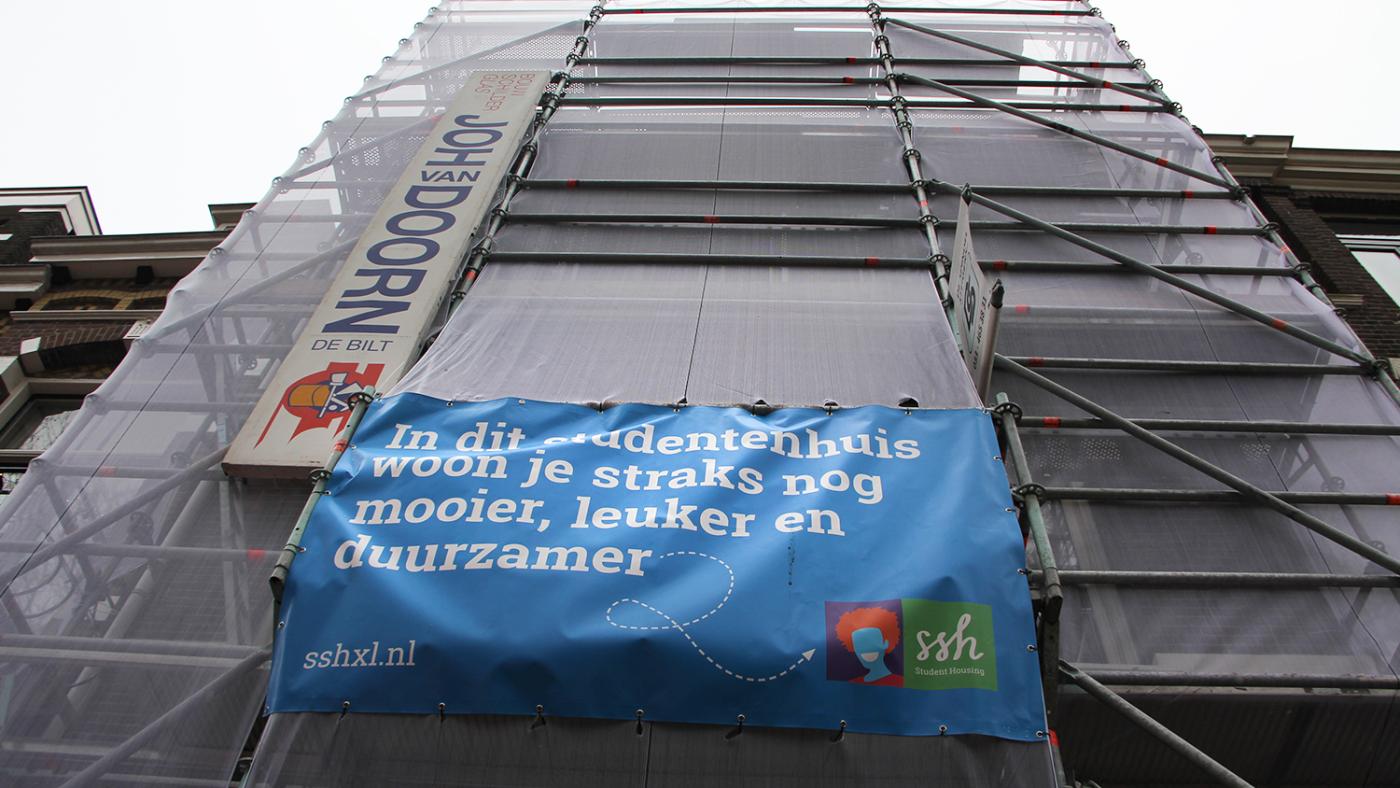
Renovations in the city centre
In total, SSH owns about 150 buildings in Utrecht’s city centre. All buildings with single glazing will get a type of insulating glass suitable for a historical building. That's basically single glazing with the same insulation value as double glazing (HR++). In 2023, SSH carried out a pilot with two contracting companies, installing this special glass in six buildings. The historical window frames did not have to be replaced. Since the pilot was successful, eighteen more buildings had their windows replaced. Over the next few years years, SSH will tackle the remaining properties.
SSH had long wanted to install new glass with a better insulation value, but couldn't do it until now. Tom Quik, Maintenance and Improvement Manager for the student housing provider, explains: “Most of our buildings are protected cityscapes or listed as monumental buildings. That’s why we can’t just replace the window frames. Double glazing is a lot thicker than single glazing. Such a thick pane of glass doesn’t fit inside an old frame. Fortunately, techniques have come so far in recent years that there is now much thinner glass with the same insulating value as triple glazing. The pilot showed that we could replace the glass at the same time as we'd be painting the window frames, which has to be done every five to six years anyway. That is why we have decided to install insulating glass when buildings are due for maintenance painting.”
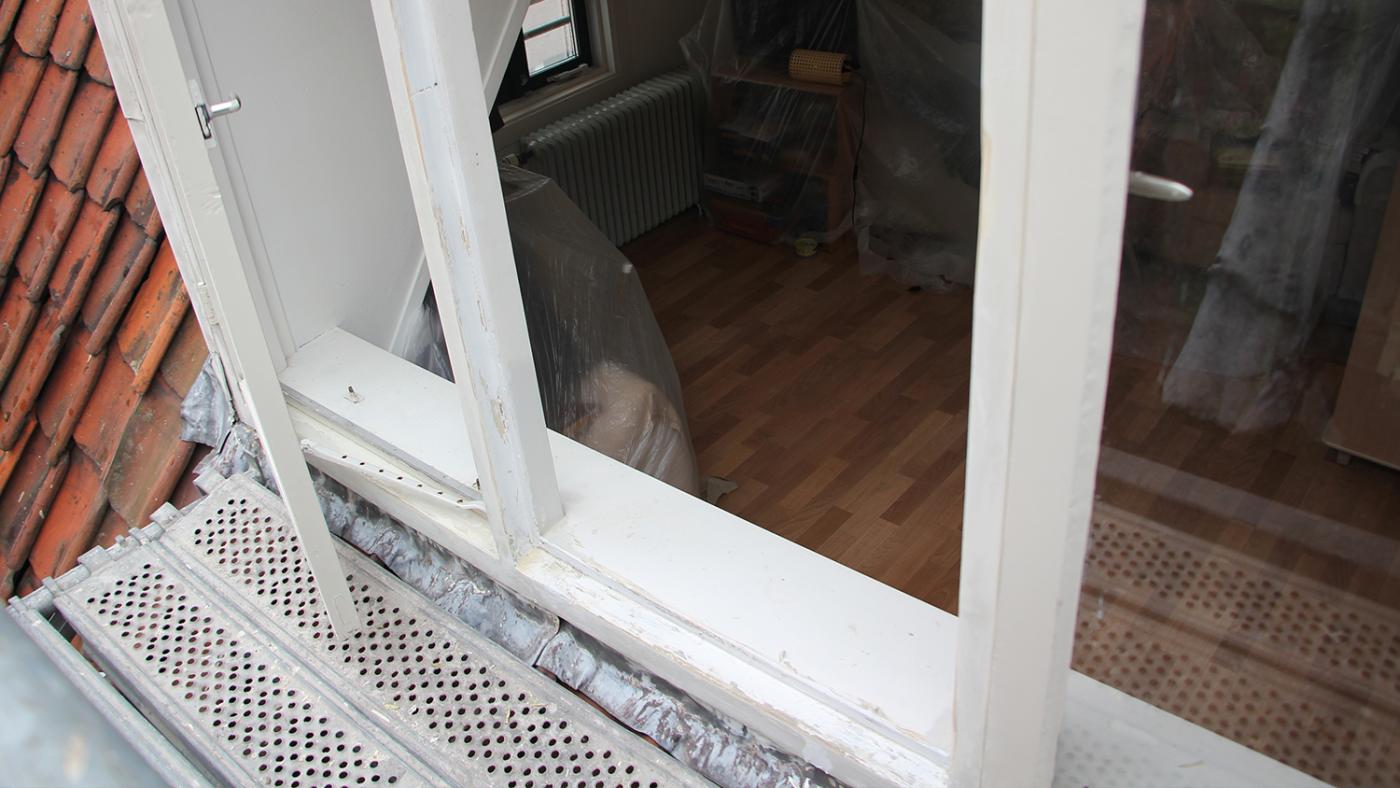
Helpful
The construction worker in Bram’s house is still standing in the hallway, looking at his phone, when Benine comes to stand next to him. She has already showered and had breakfast because she has to go to her internship soon.
“It’s my room’s turn, right?” she asks. Yesterday, the workers replaced a small tilting window and she thinks the other windows will get done today. All her furniture is set aside and covered with a plastic sheet.
But Benine is mistaken. Another worker is responsible for replacing the windows that can’t be opened, says the construction worker. He talks to the painters and other parties in the building, and it turns out that Benine’s room will probably not be ready until next week, although he can’t say for sure which day. Benine decides to sleep at her boyfriend’s for a few days.
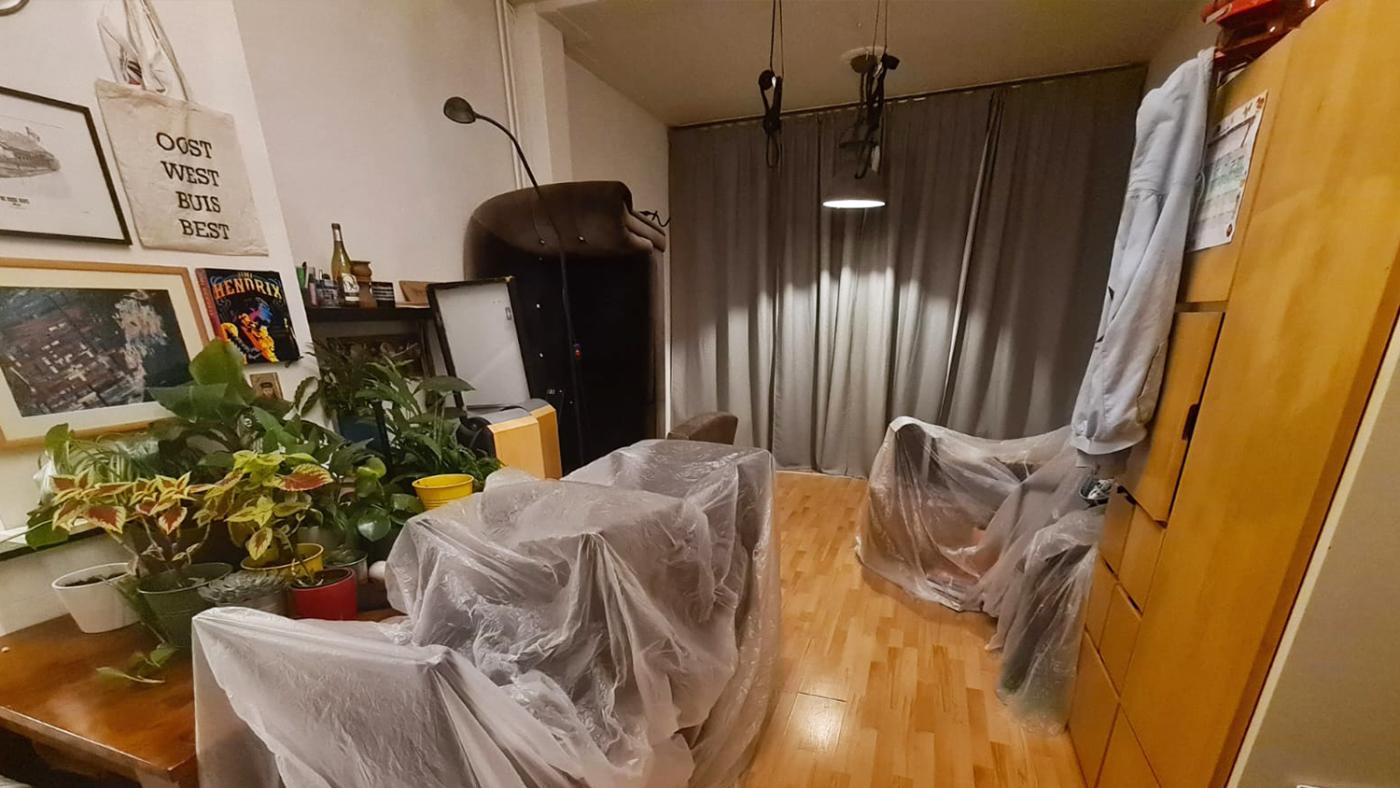
Unclear schedule
“The communication about the schedule is annoying sometimes,” says Daan, a resident of another building that has also had its windows replaced. “You don’t know which room they will work on until the day before. That’s quite tricky because you have to move away everything within a two-metre radius of your windows and cover your furniture with plastic so that it doesn't get stained by paint and construction dust. It would be handy to be able to plan that in time, given that we can't use our rooms during that time. It gets difficult to study at home."
Tom Quik explains that the contractors are responsible for communicating with the students. In some buildings, communication is done through the house elder. In others, the construction workers created a group chat with the residents to share information. But that doesn’t always work. Sometimes, the information is confusing. The construction workers also stop replying after 5:00 pm. Residents have to remember to find out the planning for the next day in time.
But it’s not easy for the construction workers either. For example, they have to adjust their schedule when it rains, or when students are sick, or if one of the other implementing parties runs into problems, delaying all other work.
“If SSH interferes too much, it becomes a confusing mess. Depending on several factors, the schedule is sometimes adjusted per day. It's very inefficient if that kind of information has to be communicated through us every time,” says Quik. “We are there for the residents if they have complaints or if things go wrong, for example. In my experience, communication between the contractor and the students usually runs smoothly. Our residents are articulate, reasonable, and mostly friendly.”
It differs per house how easily the workmen can do their work. “Some houses are very close-knit,” says one of the painters. “Everything goes easy there. They just share rooms, which makes things very flexible. Then we can continue to work and get it all done faster. In other houses, the residents don’t socialise much, so they can be quite annoyed that we have to keep entering their rooms. But we always do our best to get out of there as soon as possible.”
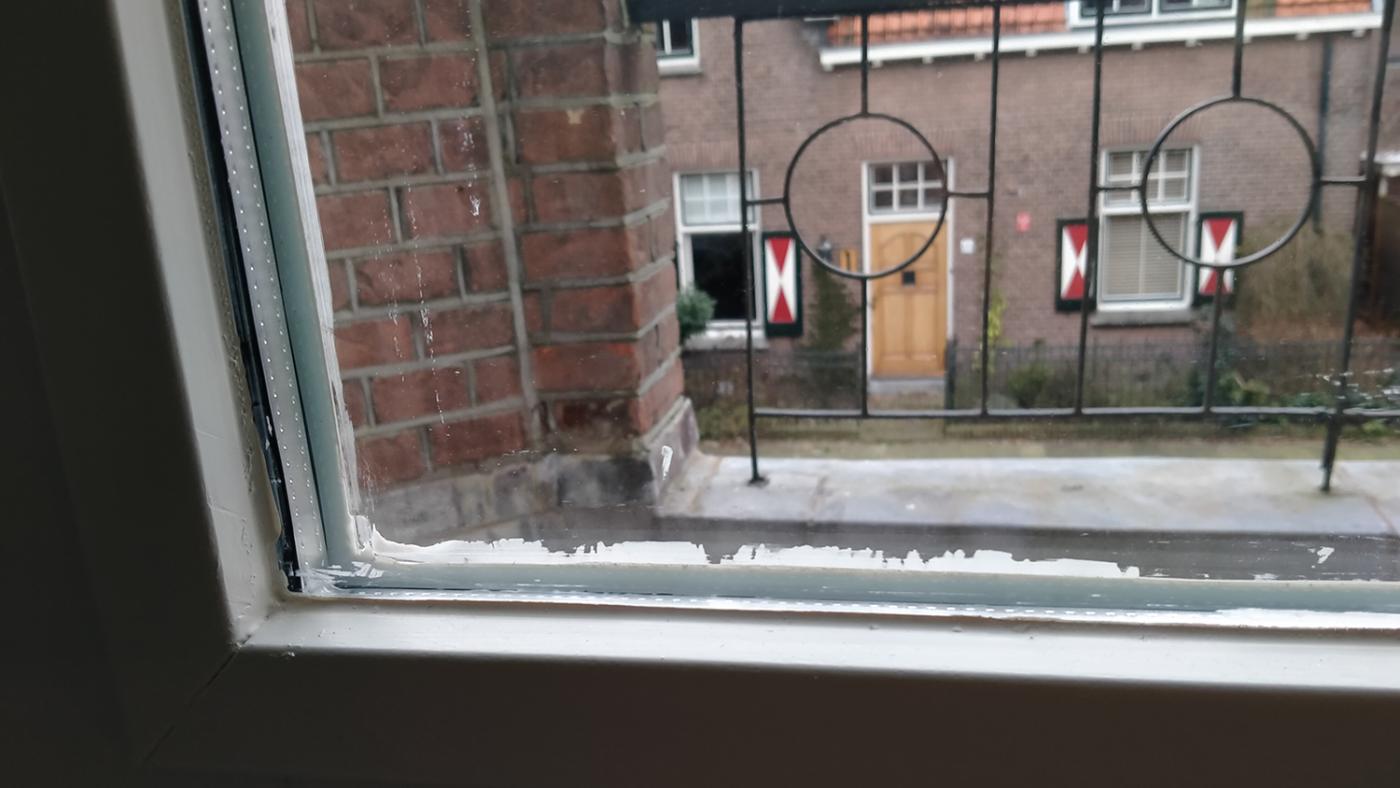
Tilted homes
Not everything has gone smoothly. “They ordered the wrong windows for our home,” says Emma, who lives in the city centre with seven roommates. “They had already replaced a window before they discovered they were the wrong size. They were too small.”
The same happened at Giel’s house. He lives in a room with a small balcony on the first floor. After the glass was removed, they found out that they'd ordered the wrong size. As a temporary solution, wooden plates were screwed on to cover the window until the right size was delivered a week later.
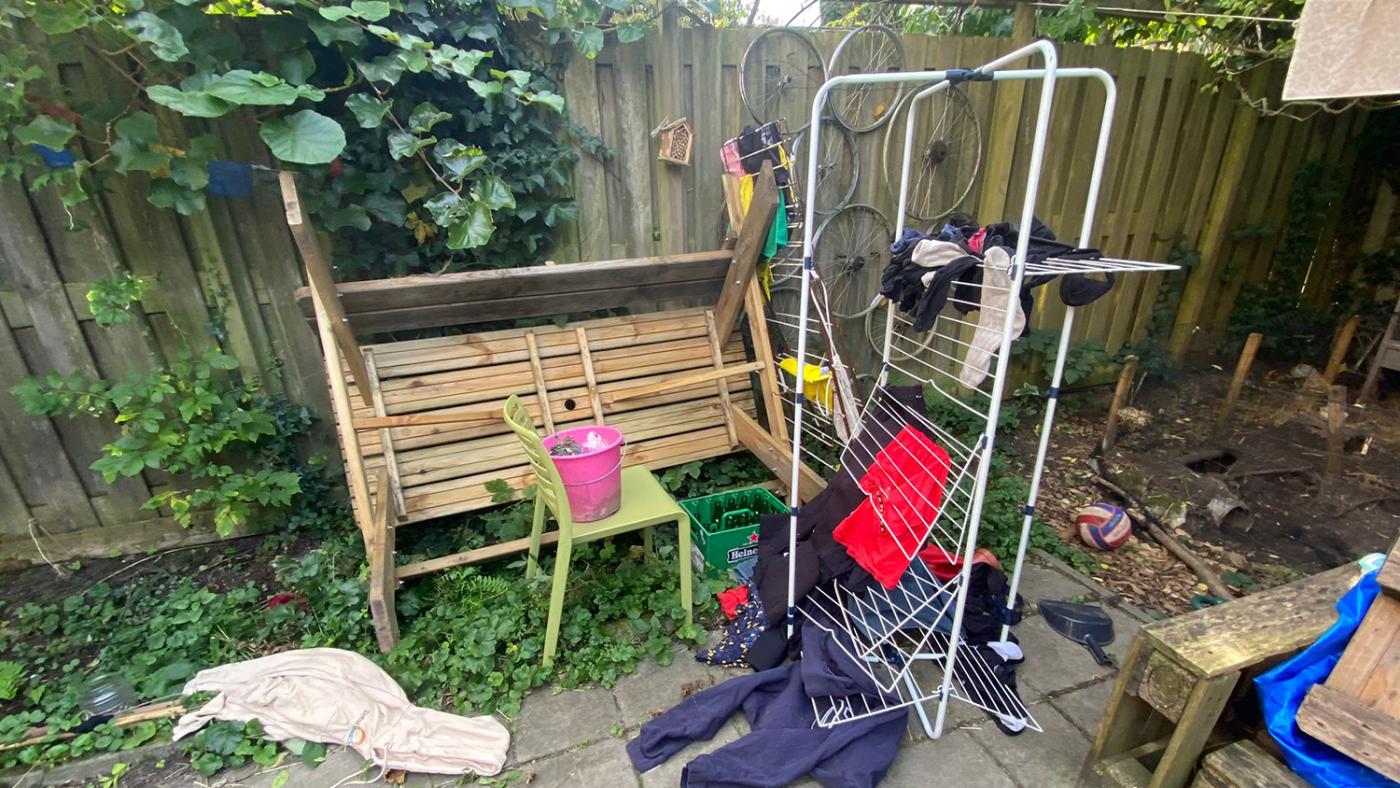
The construction of the scaffolding also inconvenienced the residents. “We have a flower pot in the garden,” says Jade. “They placed it in the middle of our vegetable garden to make room, together with a table. Of course, they didn’t know it was a vegetable garden, but it’s a shame.”
Quik agrees that things go wrong from time to time. “We have indeed ordered the wrong windows. In addition, sometimes things go wrong in the cooperation between the many parties working on a house, but we think that these were mainly teething problems. The buildings in the city centre are a special case, both in terms of the residents and in terms of how they were built. For example, there are no standard sizes. That is what gives character to these buildings: everything is old, a little slanted, and sagging. For this reason, everything has to be measured properly and sometimes mistakes are made. But now that the project has been running for a little while, things are getting better and better.”
Both Giel, Jade and Emma are happy with the results of the renovation. Their room is much easier to heat than it was before. “The wind used to blow right through the windows,” says Emma. “Now that doesn’t bother me anymore. Besides, there is almost no condensation on my window in the morning. It’s much less humid.”
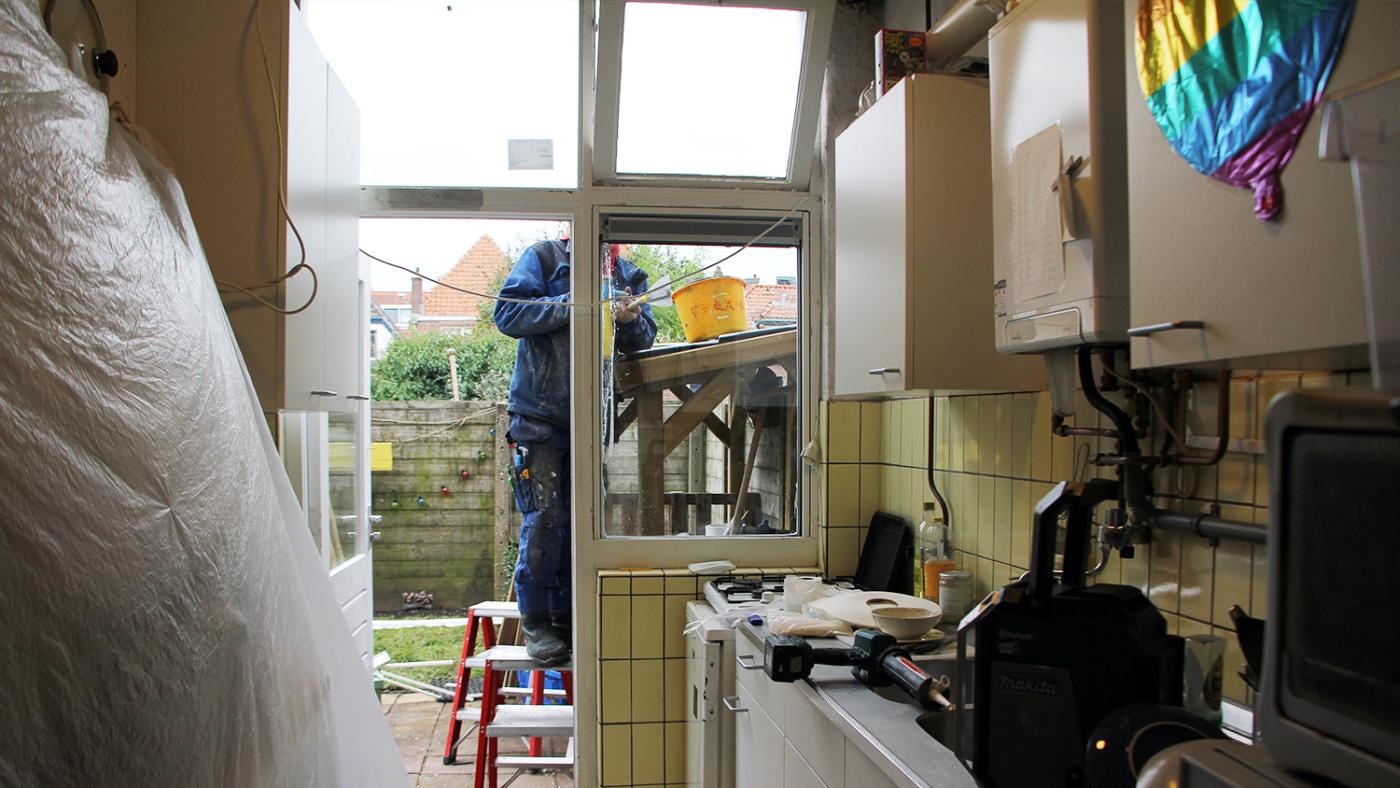
Sweet construction workers
On a ladder in the kitchen of a building on Kemperstraat, a painter is fist-pumping to the music blasting from his speaker. He has greying hair, worn in a ponytail, and a face as weathered as the window frames he is sanding.
“Nice, isn’t it?” he shouts. “Boris Brejcha! Do you know him? Great, man. I love house music.” Hopefully, his music taste is beloved by the residents, too, because the volume is high. But Joop, the painter, is considerate and turns it down when students say they have to study.
“The construction workers are really sweet,” says Emma, who lives in one of the renovated houses. “I was sick on the day they were supposed to start working in my room. But when they knocked on my door in the morning and saw how I was doing, they immediately changed the schedule for me. 'Stay nice and warm in your bed,'” they said. “We’re going to take care of it.” They did another roommate’s room first.” The same thing happened to Alex, who lives in another building. “They’ve even offered to make tea. Really, really sweet.”
